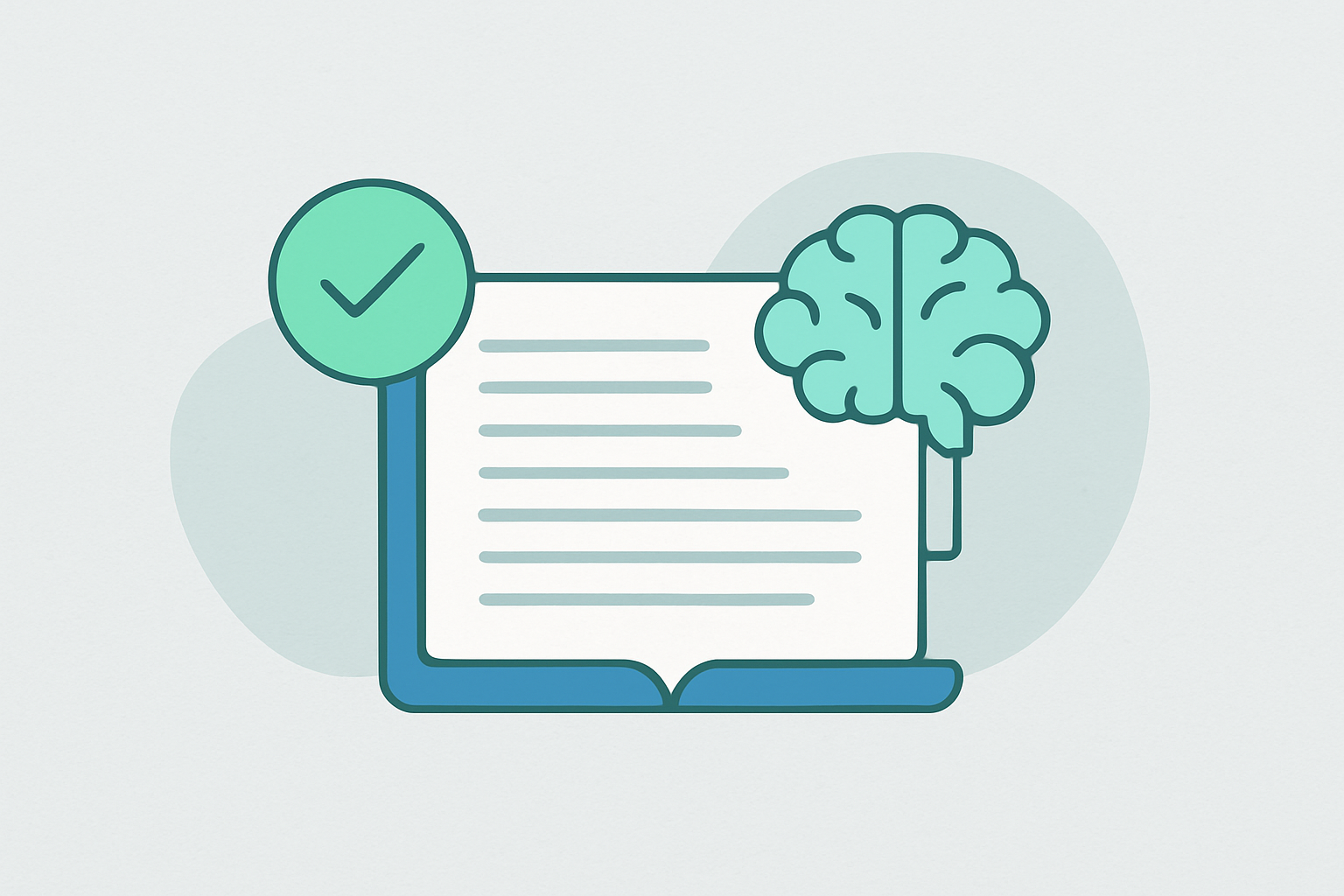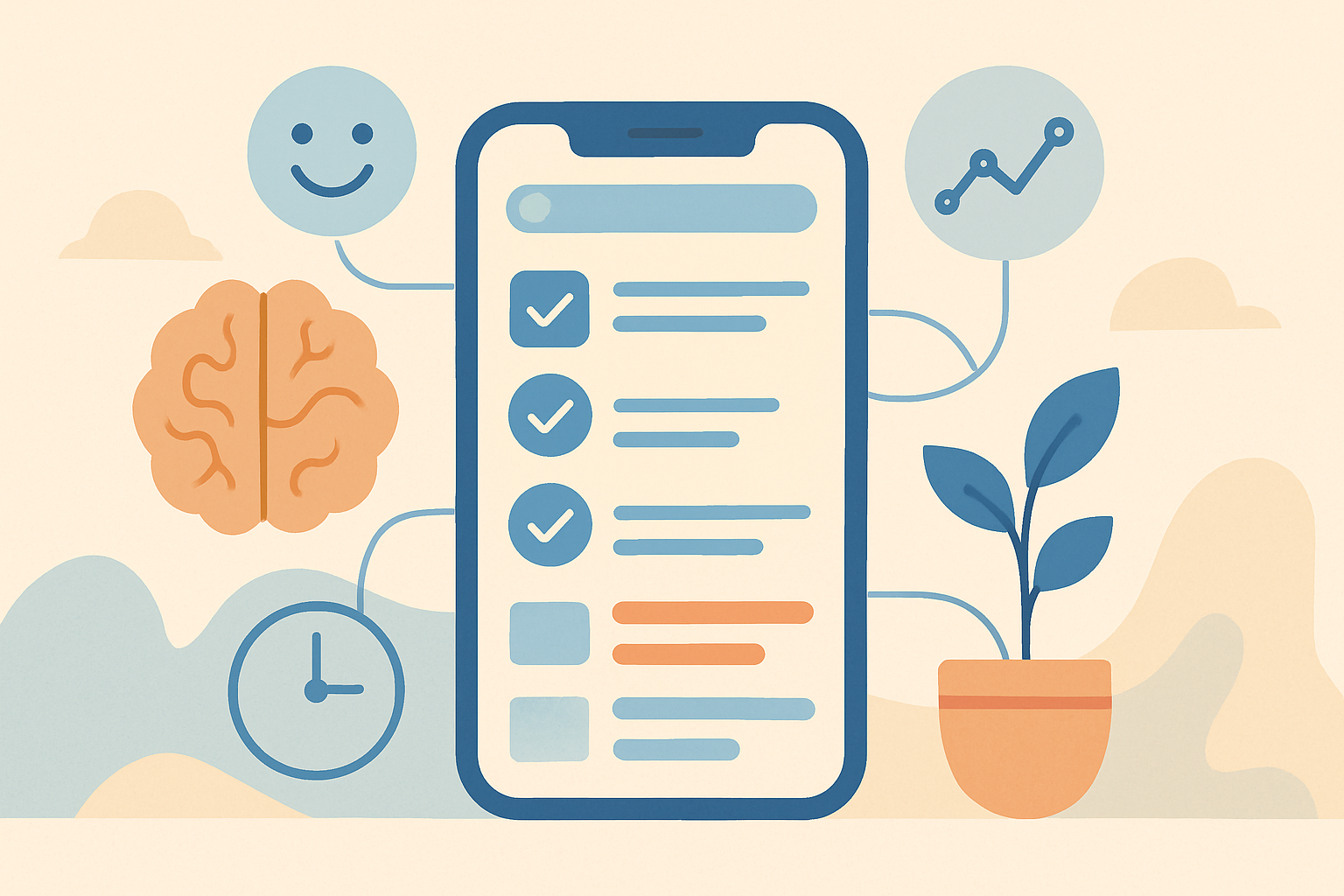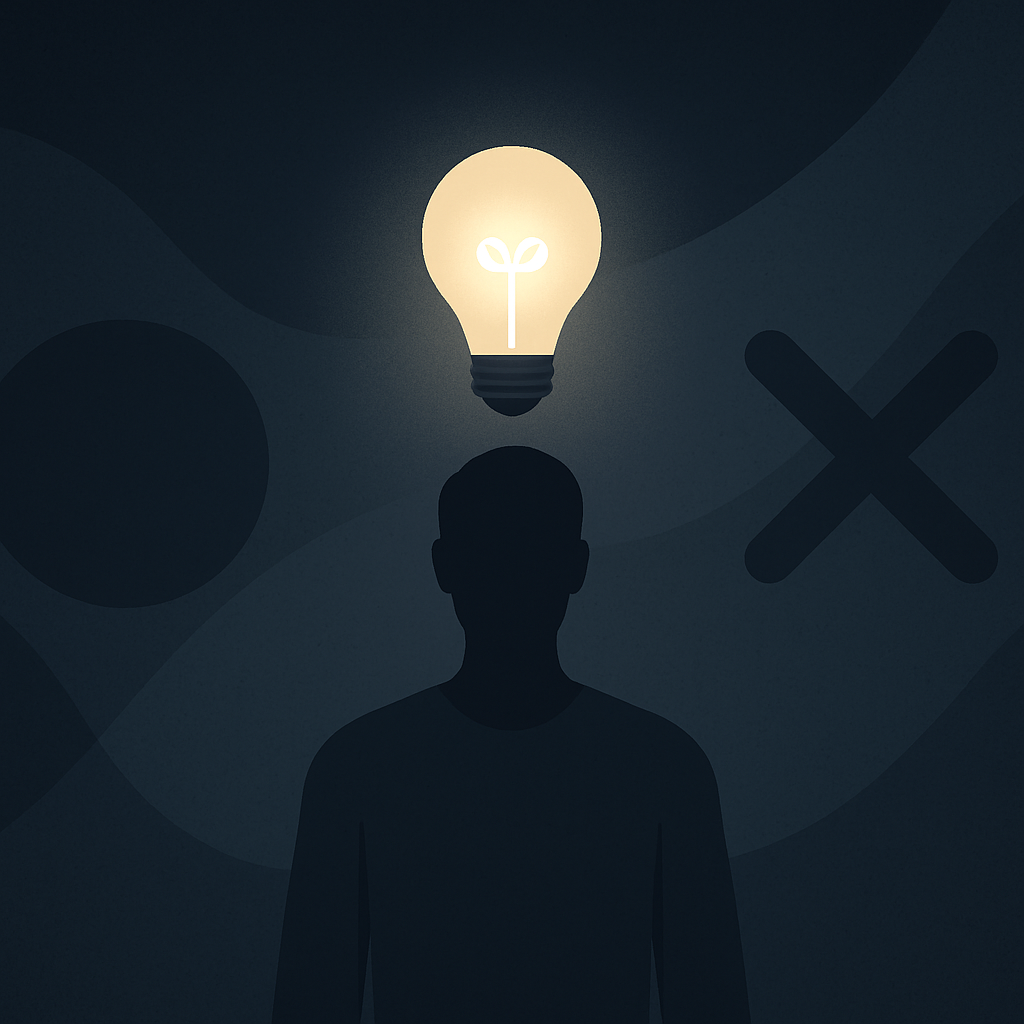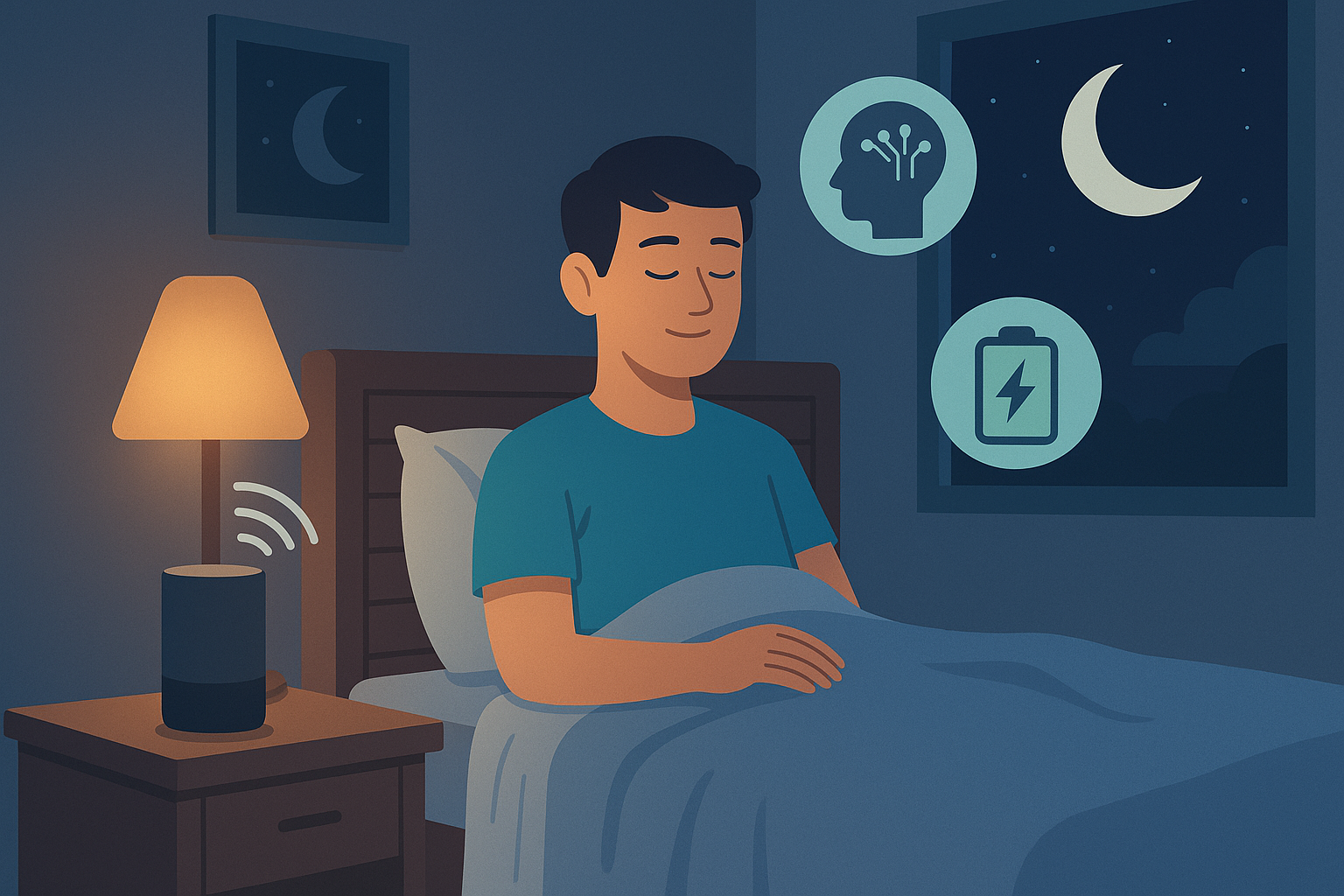AI Journaling. There’s a quiet revolution happening inside the notebooks and note apps of modern professionals.
It’s not about handwriting more or buying a new productivity system. It’s about thinking deeper — with help from artificial intelligence.
AI journaling combines the emotional clarity of traditional reflection with the cognitive precision of data-driven insight. Instead of staring at a blank page, you collaborate with an intelligent assistant that learns your patterns, prompts the right questions, and organizes your thoughts into meaningful direction.
It’s not journaling for nostalgia. It’s journaling for evolution.

Why AI Journaling Matters Now
In an era of constant input, clarity has become a scarce resource. We’re overloaded with information but undernourished in reflection. Traditional journaling helps, but it’s static — limited by how much you can analyze in the moment.
AI journaling changes that equation. It doesn’t just store thoughts; it interprets them.
By analyzing tone, sentiment, and context, AI helps you uncover recurring emotions, decision patterns, and hidden opportunities for growth.
It’s a personal mirror that understands data — transforming your reflections into feedback loops.
For professionals, creators, and leaders, this means faster learning, stronger focus, and sharper emotional intelligence.
How AI Journaling Works
AI journaling platforms process your entries through natural language understanding (NLU) — a form of AI that reads text like a human but organizes it like a system.
Each reflection you write becomes part of a dynamic model of your mindset, helping you see evolution over time instead of isolated thoughts.
When you write, the AI analyzes:
- Emotional tone (positive, neutral, frustrated, inspired).
- Recurring goals or themes.
- Cognitive distortions or self-limiting beliefs.
- Energy patterns tied to specific times or contexts.
The result is a feedback dashboard that grows more accurate with every entry.
You stop journaling reactively — and start journaling intelligently.
Practical Example: Turning Reflection into Insight
Let’s imagine you journal every evening for five minutes.
You write:
“Today I felt productive in the morning but scattered after lunch. My meetings drained me, and I didn’t get to design the proposal I wanted.”
An AI journaling assistant like Mindsera or Reflectly AI could respond:
“Your focus pattern shows a 70% drop after meetings. Would you like to move creative work to mornings this week?”
In one message, your reflection turns into a system.
You see behavior, not just emotion.
Over time, this becomes a personalized cycle of awareness → adjustment → growth.
Tools That Make AI Journaling Simple
| Tool | Key Feature | Ideal For |
|---|---|---|
| Mindsera | Deep mindset analysis + AI summaries | Professionals tracking goals |
| Reflectly AI | Emotion-driven prompts | Emotional well-being & reflection |
| Notion AI | Linked database + journal templates | Writers & entrepreneurs |
| Replika | Conversational journaling | Building emotional awareness |
| Mem AI | Auto-tagging and context linking | Productivity-focused journaling |
Each tool uses the same foundation — natural language models — but with different purposes.
The best approach is to pick one that fits your rhythm: quick reflections, structured planning, or conversational depth.
The Flow of AI-Assisted Reflection
AI journaling thrives on rhythm, not perfection.
The goal isn’t to write beautifully — it’s to write consistently.
Here’s how a typical flow looks in practice:
- You open your journaling app and type freely for 3–5 minutes.
- The AI identifies sentiment, recurring themes, and emotional weight.
- It summarizes your entry into actionable insights.
- You receive gentle prompts for tomorrow’s reflection, building continuity.
Instead of isolated notes, your thoughts form a connected narrative — an evolving story about how you think, feel, and grow.
That’s what makes AI journaling revolutionary: it captures your inner life as dynamic data.
Beyond Reflection — Planning Through Awareness
One of the most powerful aspects of AI journaling is how it bridges self-awareness with planning.
After weeks of entries, the AI recognizes your motivational patterns. It notices when your goals lose momentum and when your focus peaks.
For example:
If your entries often show stress on Wednesdays, the system can suggest lighter cognitive tasks or introduce a midweek reset.
If you express high creativity after workouts, it might recommend scheduling ideation time right after exercise.
AI transforms introspection into an operational feedback loop — a personalized performance system guided by emotion, not just logic.
This is where AI journaling becomes more than writing. It becomes self-automation for the mind.
A Simple Framework: The AI Reflection Cycle
You can start building your AI journaling habit with this simple 4-step cycle:
| Phase | Action | AI Function | Purpose |
|---|---|---|---|
| Capture | Write daily thoughts or emotions | Language processing | Gather context |
| Analyze | Let AI detect tone & recurring ideas | Sentiment analysis | Identify focus points |
| Adjust | Apply recommendations to daily plan | Adaptive prompts | Convert reflection to action |
| Review | Summarize insights weekly | Trend analysis | Track emotional growth |
This loop keeps your reflections alive. You’re not writing just to unload emotions — you’re building a thinking system that refines itself daily.
The Psychology Behind AI Journaling
Humans have always used writing to process life. But the problem with traditional journaling is cognitive bias — we remember selectively, judge ourselves harshly, and miss patterns.
AI corrects that by giving you an objective reflection of your mind.
It doesn’t replace emotion; it contextualizes it.
For many users, this creates a sense of psychological distance — a space between thought and reaction — that enables better decisions.
It’s reflection without overthinking.
And because the AI adapts to your tone, your journal evolves alongside your growth.
AI Journaling for Mental Fitness
Just like physical exercise trains the body, journaling trains awareness.
AI makes that exercise adaptive. It pushes when you need clarity and pauses when you need calm.
Some apps now even integrate biometric data — connecting your journaling tone to sleep, recovery, or heart rate. When stress peaks, the system notices. When optimism rises, it tracks what triggered it.
That combination of emotion + data is the new frontier of mental fitness.
You’re no longer guessing how you feel — you’re tracking it like progress.
Why AI Journaling Feels So Human
At first, it seems strange to “reflect” with a machine. But what you’re really doing is co-creating awareness.
AI doesn’t judge, interrupt, or project. It listens, learns, and reflects back.
This neutrality creates safety — something even traditional journaling can’t always offer.
It’s a space where you can think without friction.
And when reflection becomes frictionless, growth accelerates.
Conclusion
AI journaling isn’t about replacing your inner voice — it’s about amplifying it.
By combining mindfulness, structure, and data, it turns reflection into a living system of improvement.
You begin to see not just who you are, but who you’re becoming.
And every day, your journal gets a little smarter — just like you.
In a world obsessed with speed, AI journaling invites something rarer: precision.
Because the next level of productivity isn’t doing more.
It’s understanding yourself deeply enough to do what truly matters.
By MBFProductivity
Further Reading & Related Insights
Internal link:
→ The 2-Hour Reset: Work-Life Balance with AI — Learn how AI helps you restore energy and focus through intelligent daily rhythm.
External links:
→ Mindsera — AI-powered journaling assistant that transforms reflections into actionable insights.
→ Reflectly AI — Intelligent journaling app that tracks emotions and mindset trends for long-term growth.
Blog
This section provides an overview of the blog, showcasing a variety of articles, insights, and resources to inform and inspire readers.
-

AI Habit Tracking and the New Rhythm of Modern Self-Improvement
AI Habit Tracking. Progress used to depend on discipline. Now, it depends on data.…
-

AI Decision Making and the New Discipline of Intentional Living
AI Decision Making. Every “yes” has a cost. Every time you agree to something…
-

The Perfect AI Night Routine to Sleep Better and Think Smarter
AI Night Routine. Your morning doesn’t begin when you wake up — it begins…
